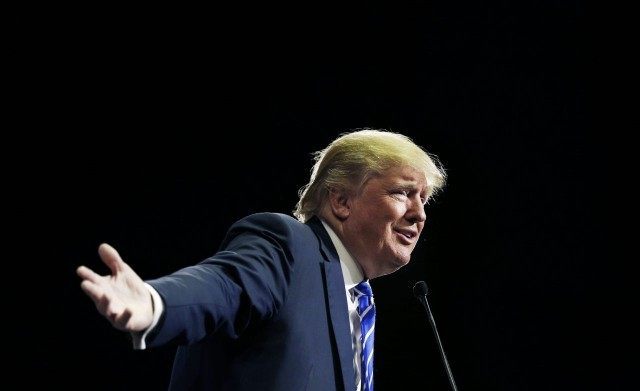Republican frontrunner Donald J. Trump pulled out of next week’s GOP debate in Salt Lake City, prompting its cancelation, so that he could address the American Israel Public Affairs Committee (AIPAC) annual policy conference in Washington. D.C. But many of AIPAC’s pro-Israel activists are upset — so much so, in fact, that organizers have had to remind them to remain polite when he speaks.
The last time AIPAC had to issue such a stern warning was in 2010, when then-Secretary of State Hillary Clinton was to speak after berating Israeli Prime Minister Benjamin Netanyahu for 45 minutes over a housing project in a Jewish neighborhood that had been announced during Vice President Joe Biden’s visit to the region. Though some AIPAC activists boycotted, the speech was received politely.
AIPAC has a policy of bipartisanship, though many of its leaders and donors are Democrats, and the organization took a leftward turn after Barack Obama’s election in the hope of maintaining influence with a president with past anti-Israel associations and in an administration staffed with known anti-Israel policymakers. Its gamble failed when Obama ignored AIPAC’s pleas against the Iran deal.
Still, the organization remains influential, especially in a year when both parties’ likely candidates have some amends to make with pro-Israel voters. Ron Kampeas of the Jewish Telegraphic Agency notes: “AIPAC insiders are looking for two things from Trump: a repudiation once and for all of his pledge of neutrality when it comes to Israeli-Palestinian peacemaking, and a more substantive outline of his plans for the U.S.-Israel relationship.” Hillary Clinton is a controversial, but known, quantity.
In addition, Kampeas writes, the Reform Judaism movement, a liberal denomination that represents a plurality of American Jews, “has promised to ‘engage’ with Trump over what it calls his “hate speech” targeting Mexicans and Muslims, among others. Many of its members are deeply opposed to Trump.
Trump has another constituency to woo — namely, the Washington establishment, much of which hovers around the AIPAC policy conference at various panel discussions and dinner events. Though he has won state after state on a wave of anti-establishment feeling, he needs to convince political insiders that he is, in fact, a safe pair of hands with which to entrust America’s national security.

COMMENTS
Please let us know if you're having issues with commenting.